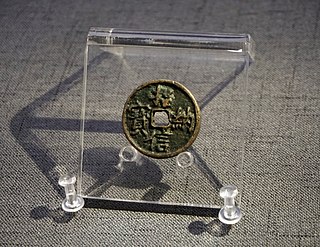 W
WThe Jin–Song Wars were a series of conflicts between the Jurchen Jin dynasty (1115–1234) and Han Chinese Song dynasty (960–1279). In 1115, Jurchen tribes rebelled against their overlords, the Khitan Liao dynasty (907–1125), and declared the formation of the Jin. Allying with the Song against their common enemy the Liao dynasty, the Jin promised to return to the Song the Sixteen Prefectures that had fallen under Liao control since 938. The Chinese agreed but the Jurchens' quick defeat of the Liao combined with Song military failures made the Jin reluctant to cede territory. After a series of negotiations that embittered both sides, the Jurchens attacked the Song in 1125, dispatching one army to Taiyuan and the other to Bianjing, the Song capital.
 W
WThe Jin–Song Wars were a series of armed conflicts conducted by the Jurchen Jin dynasty and the Song dynasty in the 12th and 13th centuries. The Jurchens were a Tungusic–speaking tribal confederation native to Manchuria. They overthrew the Khitan Liao dynasty in 1122 and declared the establishment of a new dynasty, the Jin. Diplomatic relations between the Jin and Song deteriorated, and the Jurchens first declared war on the Song dynasty in November 1125.
 W
WThe Battle of Caishi was a major naval engagement of the Jin–Song Wars of China that took place on November 26–27, 1161. It ended with a decisive Song victory, aided by their use of gunpowder weapons.
 W
WThe Jingkang Incident, also known as the Humiliation of Jingkang and the Disorders of the Jingkang Period took place in 1127 during the Jin–Song Wars when the forces of the Jurchen-led Jin dynasty besieged and sacked Bianjing, the capital of the Han Chinese-led Song dynasty. The Jin forces captured the Song ruler, Emperor Qinzong, along with his father, Emperor Huizong, and many members of the imperial family and officials of the Song imperial court.
 W
WThe Battle of Tangdao (唐岛之战) was a naval engagement that took place in 1161 between the Jurchen Jin and the Southern Song Dynasty of China on the East China Sea. The conflict was part of the Jin-Song wars, and was fought near Tangdao Island. It was an attempt by the Jin to invade and conquer the Southern Song Dynasty, yet resulted in failure and defeat for the Jurchens. The Jin Dynasty navy was set on fire by firearms and Fire Arrows, suffering heavy losses. For this battle, the commander of the Song Dynasty squadron, Li Bao, faced the opposing commander Zheng Jia, the admiral of the Jin Dynasty. On the fate of Zheng Jia, the historical text of the Jin Shi states:Zheng Jia did not know the sea routes well, nor much about the management of ships, and he did not believe. But all of the sudden they appeared, and finding us quite unready they hurled incendiary gunpowder projectiles on to our ships. So seeing all his ships going up in flames, and having no means of escape, Zheng Jia jumped into the sea and drowned.
 W
WThe Treaty of Shaoxing was the agreement that ended the military conflicts between the Jin dynasty and the Southern Song dynasty. It also legally drew up the boundaries of the two countries and forced the Song dynasty to renounce all claims to its former territories north of the Qinling Huaihe Line, which included its former capital Kaifeng. Emperor Gaozong of Song executed Yue Fei after the treaty.
 W
WThe Battle of Yancheng took place in 1140 near modern-day Luohe City in Henan Province, China between the main armies of China under the Song dynasty and the Jurchen Jin invaders from the north. The battle was a major clash in the wars between the Jin Empire and China. The Chinese forces, under the leadership of General Yue Fei, won a decisive victory despite being outnumbered.
 W
WYue Fei, courtesy name Pengju, was a Chinese military general, calligrapher, and poet who lived during the Southern Song dynasty. His ancestral home was in Xiaoti, Yonghe Village, Tangyin, Xiangzhou, Henan. He is best known for leading Southern Song forces in the wars in the 12th century between Southern Song and the Jurchen-ruled Jin dynasty in northern China before being put to death by the Southern Song government in 1142 under a concocted charge. He was granted the posthumous name Wumu (武穆) by Emperor Xiaozong in 1169, and later granted the posthumous title King of È (鄂王) by Emperor Ningzong in 1211. Widely seen as a patriot and national folk hero in China, since his death Yue Fei has evolved into a paragon of loyalty in Chinese culture.
 W
WThe Zhaona Xinbao is a special type of Southern Song dynasty cash coin developed as a propaganda and psychological warfare tool for recruiting defectors from the army of the Jurchen Jin dynasty around the year Shaoxing 1 under the reign of Emperor Gaozong. These special coins superficially resemble traditional Chinese cash coins but contain an inscription alluding to their intent, generally these Zhaona Xinbao tokens were made from bronze but in very rare cases they were also made from silver or gold.